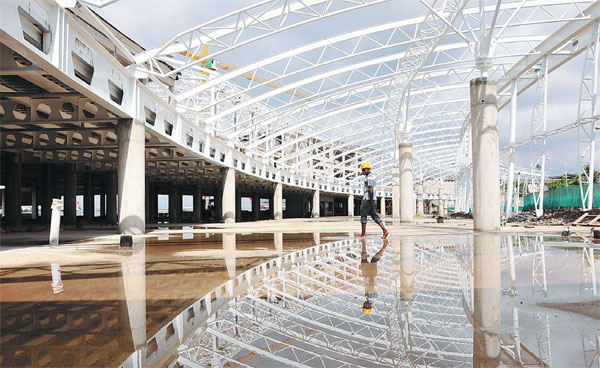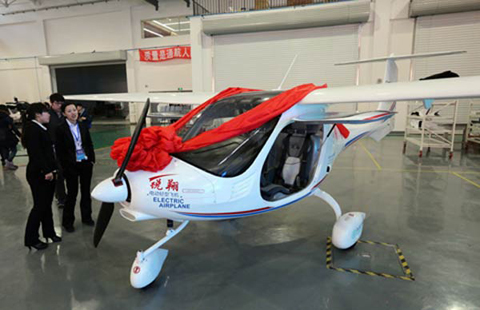Chinese companies take leading role in building airports in Africa
By Huo Liqian and Hu Haiyan (China Daily) Updated: 2015-02-09 08:25
 |
|
The interior of Terminal 4 at Jomo Kenyatta International Airport in Nairobi. [Photo/Xinhua] |
As African aviation continues to grow, Chinese companies are taking a leading role in building airports in the continent.
When Chinese Premier Li Keqiang was in Africa in May of last year he enthusiastically spoke about how China and Africa could work together on highspeed railways, highways and aviation.
He also pledged more aid to the continent by raising Chinese concessional loans to it to $30 billion from $20 billion and said that infrastructure projects would take top priority.
"To realize inclusive economic growth, one needs to give priority to infrastructure development, in particular transport," Li told the World Economic Forum on Africa in Abuja, capital of Nigeria. "This is the basis on which the economy of developing countries takes off. In working with Africa, China will continue to give priority to developing infrastructure."
One of these priorities is the China-Africa Regional Aviation Cooperation Plan, through which joint aviation companies are being set up, jets to be flown on regional routes are being built, aviation technical personnel are being trained and supporting facilities are being built.
China has built roads and railways in Africa for many years, but its involvement in building airports has got into full swing only in recent years. Chinese companies have built airports in Kenya, Mali, Mauritius, Mozambique, Nigeria, the Republic of Congo, Togo and elsewhere. Many more are likely to be built within years with the backing of the government, particularly given that many countries are crying out for such infrastructure.
China's wealth of experience in building in its vast land, no matter the climate or the geology, is an advantage for Chinese companies' competitiveness, experts say. However, the lack of skilled people, who are familiar with international standards, competent in technical English and aware of the differences in construction contracting in Africa and China, is a big impediment to these ambitions being realized.
Africa accounts for only 2.85 percent of global passenger traffic and only 2 percent of global airport income, even though it is the second-largest continent and the second-most populous, according to the aviation industry consultancy Center for Asia Pacific Aviation. The Airport Council International Africa says it has 250 commercial airports as members, but that the continent needs more airports as flying becomes increasingly popular and as urbanization continues apace.
"With rapid growth across Africa, aviation is becoming more and more the preferred mode of travel," says spokeswoman Tebello Mokhema with the Airport Council International Africa. "Most of that development is taking place because of the rapid urbanization in most cities. Thus, with developing cities encroaching on airport land, airports are having to be relocated away from the expanding urban areas."
- Chinese companies take leading role in building airports in Africa
- John Naisbitt says China is 'The game-changer'
- Dalian Wanda shows that it is on the ball
- Opening the tap a little ensures further reforms
- Apps bring bigger paychecks
- Venture capital investors gets switched on to online deals
- England's Goodwood Estate has a good story to tell China
- Airports help landlocked Rwanda grow

















